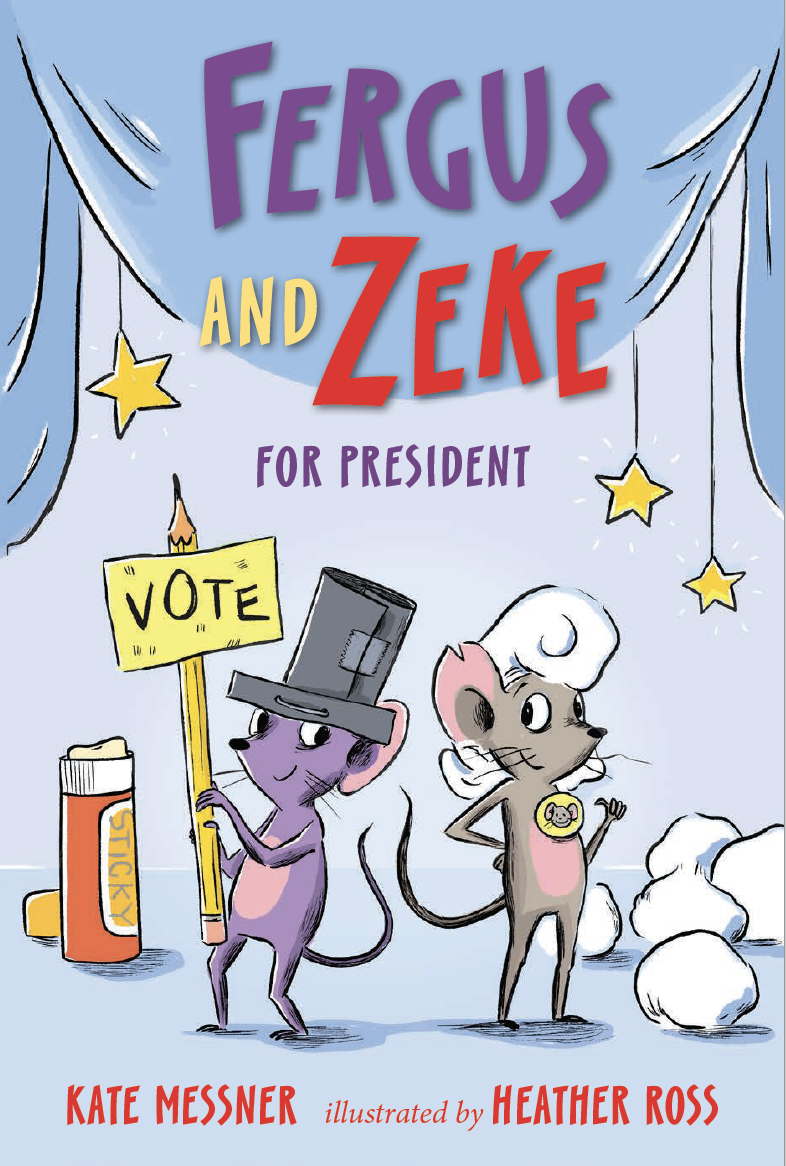Today’s Tuesday Quick-Write is from guest author Phil Bildner. Phil is the author of the New York Times bestselling Sluggers! series, the Texas Bluebonnet Award-winning Shoeless Joe & Black Betsy and its companion, The Shot Heard ‘Round the World, both illustrated by C. F. Payne; and Twenty-One Elephants, illustrated by LeUyen Pham. His latest picture book is The Soccer Fence.


Phil’s Quick Write for today reminded me of this clip from DEAD POETS SOCIETY.
Inspired? Here’s Phil with your prompt for this Tuesday:
Sometimes we need to take a fresh look at the things we see everyday, look at our world from a slightly different perspective. Go to the place where you usually write. Now instead of sitting in your chair, stand on it. Or get a step stool or small ladder. Stand on that and look around at the things you see everyday. Suddenly, things look a whole lot different. Write about what you see differently from up here.
Feel free to share a bit of your response in the comments!





Thank you for your time! I think I was distracted by what I saw rather than the differences in what I was seeing.
____
Standing on my footstool, my writing space looked the same to me: elderly brown umbrella rocker, teal couch, crackling wicker footstool warning me that perhaps it wasn’t meant to be stool on. Our kitchen is a step higher than my writing space, so the difference wasn’t profound. But when I looked outside at my normal writing view, I realized I was eye level with our hummingbird feeder. One has perched to drink, and I see it in all its perfection: petite, delicate and fierce.
This has been the summer of the hummingbirds. We’ve seen them before, but the addition of a cheap feeder bumped them from rare to hourly sightings. The key to spotting them was the recognition that the hum of hummingbirds is an insect-like buzz. When we hear it, all five of us perk up, ears pricked like rabbits. Glossy-green, they chase each other away from the feeder, territorial dive-bombers.
Nice, Terry! I think what you’ve done is to really zero in on something you see from a different perspective. As children’s writer this is a great lesson for me, reminding me get down closer to a child’s level from time to time and see the world the way they would and see what they’d notice.
I love your language — unexpected and so vivid, calling a hummingbird fierce and comparing yourselves to alert rabbits. Very fun how one shift got you to notice and then expand on what you noticed.
Back at school this week, so I’m standing on a chair in my classroom. First thought: there’s a lot of room — a lot of space — above our heads that we take for granted. Related inspiration: remember to look up! Second thought: perching on a swivel chair at seven in the morning is a dicey proposition, but (as Robin Williams’ character John Keating knew) it’s also a little exhilarating. I notice all the other desks. They seem smaller from up here — less like stout furniture, more like fragile dollhouse toys. That’s probably how most things look to someone who’s pushing eight feet, I suspect.
That description about standing on a swivel chair being a dicey proposition probably takes most of the teachers here back to a moment that they did that themselves. It’s great how this shift in perspective breaks open our normal expectations. Great insights, thanks for sharing.
Remember Officer Buckle!
The other night, my youngest son was acting up. He is usually so law abiding but was suddenly having fun being bad for a day. We’re at my parents’ house and, come bedtime, he dashed out of the room, down the stairs and out the back door, calling back, Ha ha ha…!
In retrospect (and even a little at the time), it was really funny (and his evil twin has since departed, with my decent little Blake back in his place). But, at the time, I followed him out into the inky night. I knew he was hiding behind the ancient rhododendron, probably swatting off mosquitoes. Rather than be baited, instead I walked past the bushes to a wide open piece of lawn beneath these ancient trees in my parents’ side yard. I said nothing to him but lay on my back in the grass. Within minutes, both my sons were lying in the grass next to me, staring up into this piece of open sky between the trees and, as we lay there, one by one, bats came out, flitting their elastic flight across that span of sky between the trees.
No one said anything about Blake being bad. We just watched the bats, pointing out each one as it appeared, and otherwise silent in the grass listening to the night around us.
Definitely a cool, alternative parenting perspective — and I got a few hundred words of nature description for my WIP, during a time when the main character was a runaway living in the countryside around his family’s home as a teen, this morning.
Happy writing all!
What a beautiful moment, Elissa, and a beautiful description. And such a reminder that changing perspective or altering a pattern can completely change our perception and experience.
I love how you evaded the power play and ended up with a genuine childhood memory to cherish.
Elissa, please include this scene in your book, or in some work you publish. It’s wonderful, the sort of passage a reader wants to come back to.
What an awesome moment Elissa. It’s great when we can step back and think about reacting differently to things. This applies to writing as well. I love the perspective of looking up at the sky (and can’t help but think of A. S. King’s ASK THE PASSENGERS, whose mc does this quite a bit. Thank you for sharing.
Thanks Wendy, Terry and Jane. You know, I saw a literary agent poste on Twitter today a picture from where she was working, squatting temporarily in an empty office — almost like our assignment today. At the same time, it made me think of one of the advantages teachers should mine as writers: I don’t know if everyone is like this, but teaching constantly has me getting out of adult comfort zones — sitting on the floor, on the ground, climbing on things, slowing down… — as I get out of my head to connect w students. This activity immediately had me thinking of all the reasons we climb on chairs and desks setting up classrooms, even. And of course there’s that “lie in the grass and watch bats to evade somebody’s tantrum” moment. 🙂
I just add this as a reflection that, as we’re coming to the end of TW and some campers may feel bad, thinking they can’t write as much while teaching, you could at least find appreciation in your opp’s to observe life from a different perspective like this! Take good notes. You’ll be armed with details for when TW starts again next year, right? 🙂
Thanks again for responding to my post. Good to see you all.
Dear Phil,
Thanks for making me change perspective in a different way. Standing on a stool is very different. Although I collected sensory details, and went back to Kate’s 7/7 post to reread directions about zooming in to a particular sense, I did have some the same observations from where I normally sit and standing on the stool. Two big differences I noticed were: I found myself looking down. I didn’t even realize this until I was writing for a few minutes. When I’m sitting on my deck, I always look up! But looking down, I found geometric details in the stone patio and the plants and bushes decorating my backyard.
The other thing I became aware of was me. Standing on the stool was scary. I had to not lose focus while observing the sensory details around me, but then I found myself being distracted by paying attention to myself and my balance. I don’t even put “me” in the picture when I’m out there writing. If I look at it as a character, that realization is huge for me as a writer. This is going to make a difference in the picture book I am writing right now.
Thanks!!!
Being a little on the shorter side, I often stand on tables/chairs in order to reach what I need, but I’ve never taken the time to just look around like I did today. I never really noticed before that I can’t see the top of my fridge – until I could see it today. Ooops – I guess I’ve been neglecting to clean that space! Tables and chairs look different somehow, but I can’t quite put my finger on it….wider or longer maybe? They just seem to have a different proportion from that angle. What stood out to me the most were the things my husband and I have left laying around! An empty plastic water bottle in the corner behind the stereo speakers, a tangle of computer cords sticking out from under an end table, A couple of random lids that fell out of a kitchen cabinet in my rush to get to work this morning and I never picked up. My God we are slobs! Somehow, these small details are MORE noticeable from up high…
A quick barbaric yawp out to Robin Williams. Your role in Dead Poets Society embodies much of the teacher I try to be for my students. Rest in peace.
While I don’t have a typical spot to write in, I am most often seated at a table in a main living area in our home. Today, I have retreated to the basement. Instead of sitting at the table, I have parked my behind ON the table.
It is secluded down here, other than the footsteps I hear rustling in the kitchen above, I am alone. In a darker space. It reminds me that the characters in my stories, the children in my class, and the colleagues in my building all experience moments like this – quiet seclusion. Given the opportunity to reflect, do we pause, and think a bit deeper into our motivations, relations, and anticipations? Or does the solitude intimidate us, and we reach for easy means of stimuli like the remote control or the tablet?
I’m choosing to slow down for a moment, to think about my thinking so I can better now myself, and through that knowledge, understand those around me better as well.
I like this a lot, Greg. The simple details you gave evoke such a vivid response — the idea of sitting in a basement, alone, and the jarring awkwardness of sitting on something other than a chair. It’s amazing how a single detail like that could be enough to convey a sense of a scene being off kilter. It was a great approach to the exercise. Let us know if any other interesting details came out of your reflection.
This made me think of my yard . from a distance it looks pretty good, but up close it is very much weed-infested. So I’ve spent a lot of time this summer on my knees. But for a fresh look at thins in the morning, I change the direction of my morning walk and do it “backwards” – it really makes a difference in how I see things and what I see.